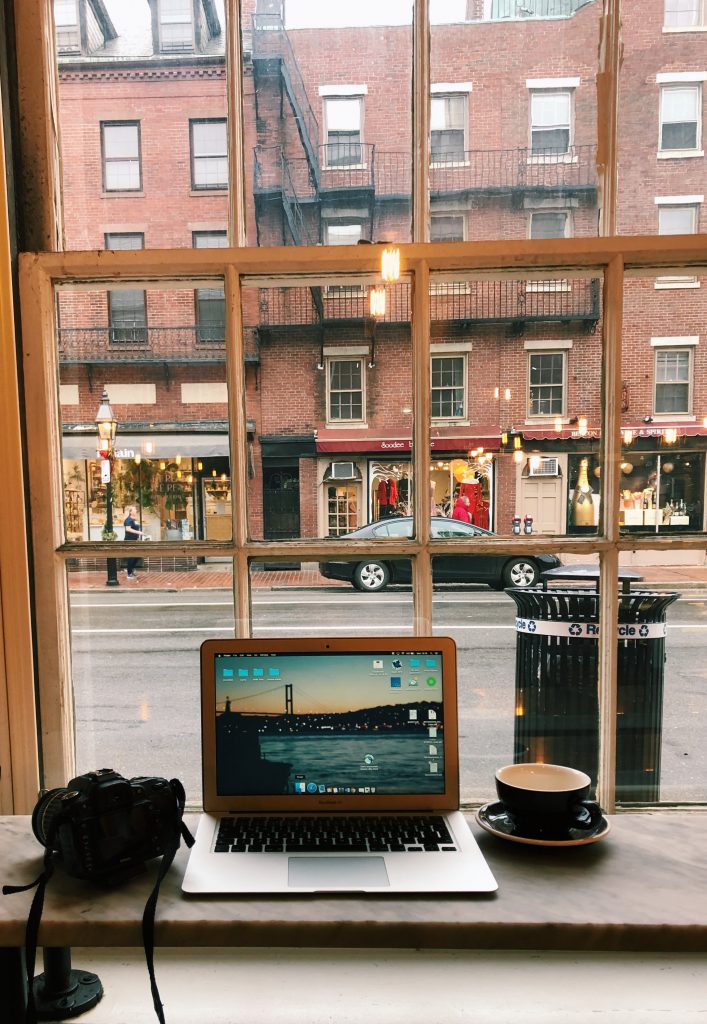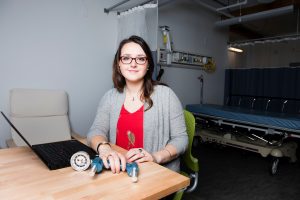Written by Ebru Ece Gulsan, Ph.D. student in Chemical Engineering
“This year I will be very productive and organized”.
“This year I will lose those extra 10 pounds”.
Does this sound familiar?
It’s been a little bit more than one year since I made the big decision to enroll at Tufts and open a new door for my career, but it still feels like yesterday to me. Did time really fly? Why do I still tend to introduce myself as “Hi, I’m a first year PhD student in…” although I’m approaching to the middle of my second year here? Why do I still have the same resolutions as last year? Was I not supposed to work harder to achieve these goals? Did I not do anything in 2019?
No, I did plenty of things in 2019! I traveled to a new country, kayaked in an abandoned bay at midnight to watch bioluminescence, learned a new programming language, completed my first winter hike (yay!), successfully drove a manual car in Powder House Square’s circle (yay! #2). I went to a small village in Slovakia to be the bridesmaid in a very good friend of mine’s wedding. I also was late to the wedding because I missed a turn while driving up to Slovakia and ended up in a different country. No, I did not attend a scientific conference this year (which I wanted to so badly), but I learned how to apply to one. I did not publish an article, but I started writing the “methods” section. I lost someone very special to me and I learned (or I’m still learning) how to tackle it. I made huge mistakes in my research which seemed irremediable at the time, but I still figured out how to make a great come back. I did not start writing the travel blog that I have always wanted to. Instead, I made a portfolio for my photography archive. I picked up a new hobby. Then I decided not to pick up another hobby. I did so many things, either planned or unplanned, but 2019 was full of things!

This photo is from December 2018, in my favorite bakery, good old Tatte, located in my favorite neighborhood, Beacon Hill. I remember exactly how I was feeling when I took this photo. I was cold (obviously), pretty homesick, overwhelmed by the amount of responsibilities I had, but also incredibly grateful, proud and euphoric. I could never know that I would find my home away from home in this city, establish lifelong friendships, meet eminent scientists and even work with them, fall in love, then cry over a man, cry over a failed experiment, and cry over a lost Python script. Then I fell in love with another man, tried that experiment one more time and fail again, and then wrote that lost script once more from scratch only to find that it was easier this time. I cried over the same experiment again, but this time it was because I finally figured it out.
2019 was full of things, but why do I still have this feeling that it was not enough?
Sometimes we lose ourselves in the big picture and forget to check the boxes for our smaller achievements. Success should not be described as an end point. Instead, every single step towards this goal should be counted as success. Success is not always tangible. Sometimes not giving up is a lot more difficult and important than achieving the actual goal. But if we keep focusing on and glorifying our end points, what we do on the way to those points start to seem insignificant. We find ourselves questioning our ability to reach our goals and think that we are not enough.
So just remember, you achieved so many things in 2019 – even though you are not aware of it yet. Every single decision you made and every single action you took brought you a little bit closer to your New Year’s resolution, be it starting grad school, publishing that paper, or learning how to drive a manual car.
I want to close the year with a realization in how we tend to evaluate ourselves. I have an ideal self in my mind that I strive to be. But I should keep reminding myself that this ideal self did not appear out of nowhere. She worked hard to be that person. If I want to be her, the first thing I should do is to realize that I am already her. Maybe 2019 was not the golden year, but it definitely laid the base for 2020 to have a chance. And if 2020 becomes that golden year, it owes everything to 2019.





